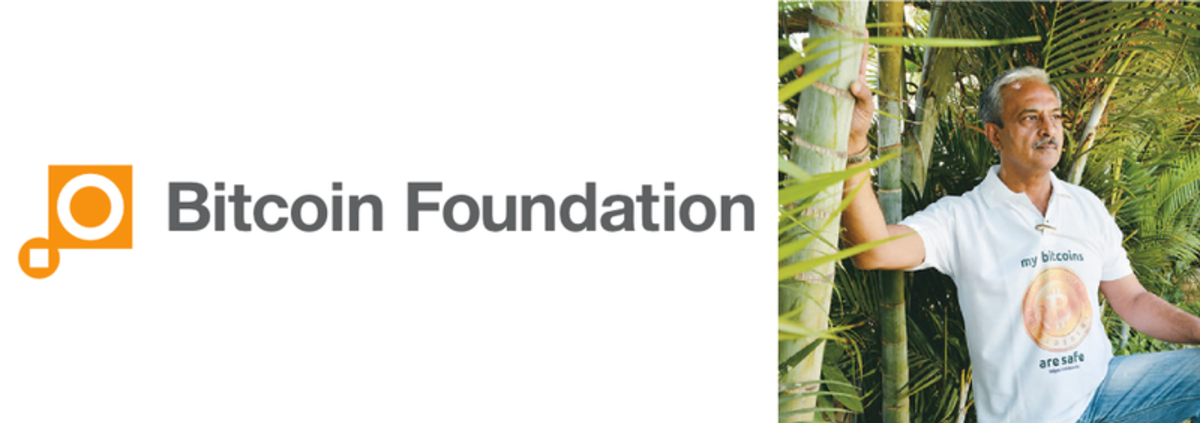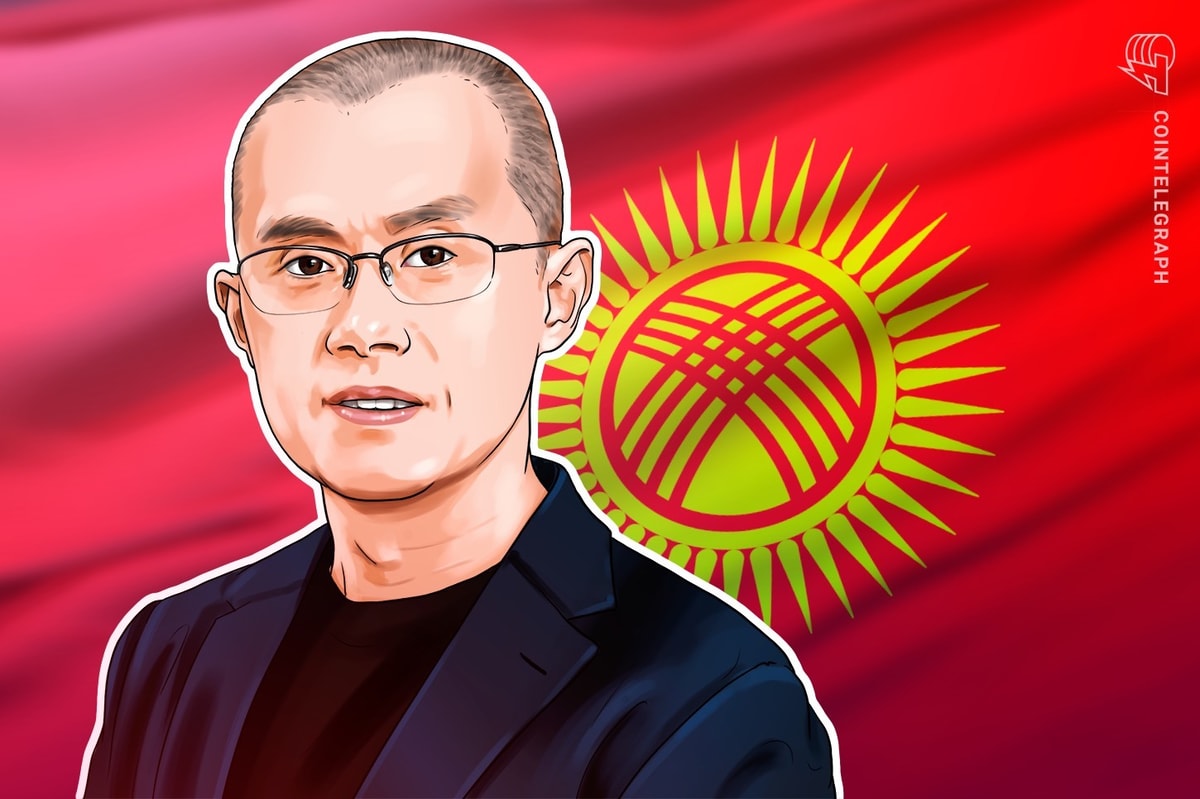
Adam B. Levine (Let’s Talk Bitcoin): Please introduce yourself and give a brief overview of what you hope to accomplish with your candidacy.
Aaron Lasher: My name is Aaron Lasher and I would be the most staunchly negative member on the board, possibly in the entire Bitcoin Foundation when it comes to financial regulations. I understand this is a bit of a strong standpoint. So, for that reason alone I don’t necessarily expect this of the Bitcoin community. But I think it’s important for them to have that option. You know, if they want someone who is always going to be the grump in the room who says, ‘No. We should not do this. We should resist these incremental regulatory pressures and find other ways to make Bitcoin flourish.’, then I’m probably your guy.
LTB: Why do you want to serve on the Bitcoin Foundation Board?
AL: Although there’s a healthy amount of skepticism in the Bitcoin community regarding financial regulation, I’ve noticed that whenever FINCEN or another oversight committee in another country makes a statement about how they would deal with virtual currencies, that there follows a fair amount of celebration on behalf of the Bitcoin users. I believe this optimism is misplaced.
I understand that Bitcoin entrepreneurs, who build the backbone of the Bitcoin community, have to deal with regulators by nature of the fact that they fall under the purview of multiple regulatory bodies. And they must seek clarity to assess the risk of whether they need to comply with AML laws or register as a money transmitter or money services business. So I don’t blame them for seeking clarification, but for the average user, I would estimate that over 90 of regulatory clarification will imply a move in the wrong direction.
So by design, regulations are incremental and vague. They result in an environment where your success rests not on breaking or following all of the regulations to the ‘T’, which is also technically impossible, but rather your political influence. Like a pest resistance crop, Bitcoin has regulation resistance built in. Whether we embrace or resist it, I think that battle lines will have to be drawn at some point.
LTB: What makes you qualified for the position?
AL: Aside from being a long/medium term Bitcoin user and enthusiast, I believe there are three things that qualify me for the position. Number one. In 2005, I co-founded an educational non-profit generating curricular content for underfunded public schools in Chicago and New York cities. We connect adventurers and their stories in order to inspire them to learn more about the world in an engaging way.
The fundraising process was something of a baptism of fire. And it taught me just how difficult it is to raise money for a cause. So I learned how to become an advocate. How to bring people and persuade them of a vision. I think advocacy is an essential trait for this position.
Number two. I’m a licensed sea captain. And I know how to work with teams in close quarters making difficult decisions. I can quickly generate consensus among people and provide solutions to problems, but I also know when it is time to step down.
Three. Although I’m American, I grew up in Europe, and I’ve also visited over 70 countries. As a result, I’m pretty good at connecting with the international community on a personal level.
LTB: Do you believe there is a right and wrong way to use a Bitcoin?
AL: Yes, but you would first have to engage in a discussion on moral philosophy. Bitcoin is a tool, and like other tools it can be used for a variety of purposes. A knife can be used to prepare dinner or stab somebody. Is stabbing somebody bad? Typically, most people would agree that it is. But what if the victim was also an armed intruder? There’s a grey area that can only be resolved with more in-depth analysis.
However, that said, I think that all forms of money are pretty neutral when you compare them to other tools. I’m strongly in favor of people deciding for themselves of how to spend their money in almost every situation.
LTB: What are your views on Bitcoins software development?
AL: It’s an absolute miracle that there are so many incredible coders out there. And I believe that this in itself is enough to keep the Bitcoin protocol moving forward safely, effectively, and honestly. However, centralization isn’t a bad thing in and of itself. Perhaps centralized authority is, but not centralized expertise and organization.
For instance, I was totally inspired with how quickly that the last unexpected hard fork was resolved. It seems now, that we have just the right balance of a semi-official bitcoin qt client with a dozen or so clients waiting in the wings looking to improve the code and collaborate with one another filling different niches. The incentives, I think, are just really well aligned for everyone to cooperate and it results in a collegial atmosphere.
LTB: Do you have plans to work with the Bitcoin Community? If so, how will you deal with the diversity of opinion?
AL: The most exciting thing about the future that I foresee is a massive flight from fiat currency into hard currencies, including Bitcoin. I don’t know precisely what it would take, whether fiat currencies need to get bad enough, or bitcoin becomes trusted enough, but I do think that it will happen. And when it does, we’re going to have to really open the doors wide to let everybody in.
That said, there are four broad groups for which I would like to create unique outreach programs.
1) People who don’t understand the current monetary system.
They need to be informed about why there are bank bail outs, where inflation comes from.
2) People who understand the current system, but are in favor of it.
They need to be persuaded that everyone is better off without central banking.
3) People with liberal progressive or statist political views (those that self-identify with those categories).
Many of these individuals are already strong members of the Bitcoin community, but they get turned off by libertarian crazies like me. Fortunately, there’s a lot of common ground that we can find and, hopefully, agree upon.
4) People in emerging economies who do not have access to typical financial services.
For these I would imagine private non-profits coordinating with the Bitcoin Foundation can do a lot to simply get Bitcoins into these communities.
LTB: Should the Foundation hire a lobbyist? If yes, why and where should they lobby? If no, why isn’t lobbying important?
AL: Sure, why not? Everyone else seems to have one. Besides, we wouldn’t be looking for handouts or special treatment. Mostly just to be left alone and recognized as non-criminal. I do think a lobbyist on the payroll could be beneficial.
LTB: If you had to change one thing about the Bitcoin Foundation, what would it be and why?
AL: I recognize that the Bitcoin Foundation is just a voluntary group made up of voluntary individuals. So, I wouldn’t be so rude as to imply that it needs to be doing anything differently.
But, if elected, I would be excited to spearhead the following 3 initiatives:
1) Full-blown contingency disaster plan.
Covering as many potential technical or geo-political developments as possible. Along with what steps should be taken to mitigate those eventualities.
2) More national and international Bitcoin Foundation member appearances on broadcast networks.
Helping to legitimize the community in the eyes of future adopters.
3) Comprehensive Bitcoin PR campaign.
Taking charge of the public message, spreading the word on the benefits of personal financial freedom, and dismissing the Bitcoiners-as-criminals smear campaign.
If you have enjoyed this interview, you can find the other candidates interviews here:










